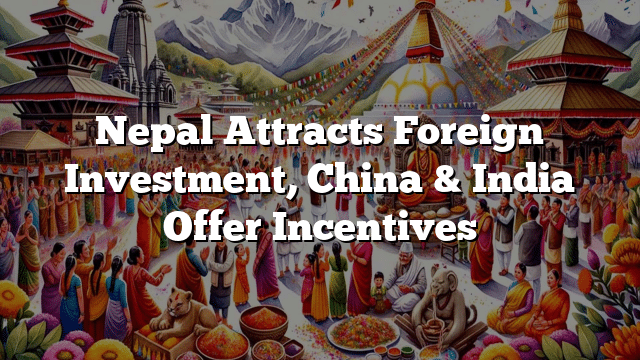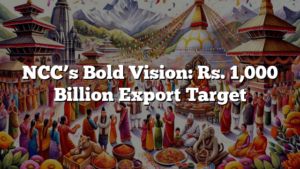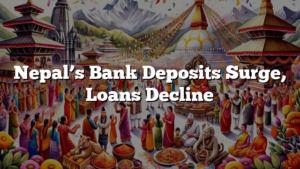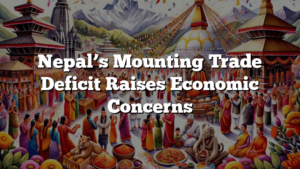
Nepal’s capital Kathmandu recently hosted the third Nepal Investment Summit, attracting over 1,100 foreign participants, predominantly from neighboring giants China and India. The summit aimed to showcase Nepal as an emerging destination for private sector investment and highlight recent reforms to enhance the investment climate.
In a significant move, China announced the exemption of visa fees for Nepali travelers starting from May 1st, 2023. This decision is part of Beijing’s renewed economic diplomacy for Nepal. Additionally, China is making arrangements to launch commercial flights to Nepal’s two new international airports in Pokhara and Lumbini, funded and constructed by Chinese contractors.
Luo Zhaohui, the chairman of China International Development Cooperation Agency (CIDCA), emphasized China’s commitment to direct and indirect investment in Nepal, prioritizing the Trans-Himalayan dimensional connectivity network. He stated, “Air and road links, border checkpoints, cross-border railway, and transmission lines are all progressing well.”
On the other hand, India highlighted its role in making Nepal prosperous through hydropower energy trade. Naveen Srivastava, the Indian ambassador to Nepal, revealed that India currently holds the highest FDI stock in Nepal, accounting for over 33% of Nepal’s total FDI, amounting to approximately Rs. 89 billion.
Srivastava further added, “Last year alone, Nepal exported about 650 MW of power to India, earning considerable revenue, which constituted about 10% of Nepal’s total export to India or 7% of Nepal’s global exports.” India has also concluded a long-term agreement on power trade with Nepal and is discussing a trilateral power trade involving Bangladesh.
Piyush Goyal, India’s Minister of Commerce and Industry, urged Indian investors across the globe to seize the opportunity and invest in Nepal, emphasizing the country’s position as a key partner in India’s Neighbourhood First policy.
The Nepali government has offered 148 potential projects, worth nearly Rs. 900 billion, to foreign and domestic investors, with a focus on the hydropower sector. Officials are hopeful that this sector will attract investment from energy-hungry India.
Pushpa Kamal Dahal, the Prime Minister of Nepal, inaugurated the two-day summit and highlighted the incentives provided to foreign investors, including a robust regulatory framework, avoidance of double taxation, protection of intellectual property rights, and competitive corporate taxation.
Barsha Man Pun, the Finance Minister, emphasized the government’s commitment to improving the business environment and boosting investor confidence through various policy reforms, such as streamlining regulatory processes, reducing the time and cost of business, and ensuring transparency and accountability in public sector governance.
Sher Bahadur Deuba, the President of the Nepali Congress and former Prime Minister, stressed Nepal’s development challenges as a least developed country and the need for adequate capital and appropriate technology. He highlighted Nepal’s advantages, including flexible labor laws, a young and energetic population, a reliable electricity supply, and the availability of local raw materials, contributing to low production costs.
Atul Keshap, the Senior Vice President for South Asia at the United States Chamber of Commerce, encouraged Nepal to enact economic reforms that would truly open the country to global markets and world-leading businesses, emphasizing the importance of creating a level playing field, regulatory predictability, and stakeholder inputs.
Chandra Prasad Dhakal, the President of the Federation of Nepalese Chambers of Commerce and Industry (FNCCI), urged investors worldwide to seize the opportunity and invest in Nepal’s burgeoning economy, highlighting the country’s strategic location between the economic powerhouses of China and India, serving as a gateway to vast markets.
The Nepal Investment Summit showcased Nepal’s commitment to attracting foreign investment and fostering economic growth, with incentives and support from major regional players like China and India, as well as global stakeholders.
Related:



